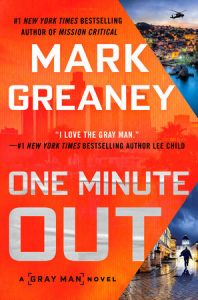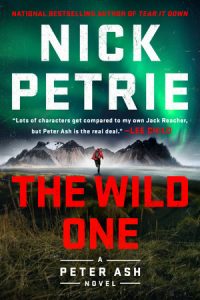We’re living in tumultuous times. Times of unrest, uncertainty, and instability, where we don’t know what or in whom we can believe. In many ways, it feels like we’re in the darkest generation yet. But I would venture to say that in every time period, people felt that same way. Fake News. Conspiracy Theorists. Behind each news story is another one that decries it as false, until suddenly we’re spiraling down a rabbit hole of half-truths and dark accounts of what is “really” going on behind the scenes. This is nothing new. From the earliest days of kings and queens, to Old Testament stories, to modern literature, the human capacity for duplicitousness and betrayal abounds. One need only take from real life in creating a compelling thriller. Shakespeare’s work is a model for the modern conspiracy thriller, and all his tragedies are based on actual events. Ironically there is a proliferation of conspiracy theories asserting that Shakespeare was not the true author.
We often read books to escape from the harsh realities of our modern world. Why then, are novels about conspiracies and evil doing so popular? You would think we would have our fill of violence, life and death states, and horror from simply watching the news. The stories acted out on the stage of life rarely end in a satisfying way. Conspiracy thrillers on the other hand, take us on a wild ride and despite our fear that the protagonist won’t survive, in the back of our minds we know it’s likely he or she will. Often the stakes in these books are immense—the fate of the world or a country hangs in the balance. A classic conspiracy thriller, The Day of the Jackal, stands to this day as the gold standard of the genre.
In the pages of these stories, we can somehow make sense of the chaos of our own world and work through the challenges with the characters. In the end, order is restored, and we feel a sense of relief that in the fiction world at least, good ultimately triumphs over evil and justice prevails. But even when things don’t end well—as in Shakespeare’s tragedies—we are drawn to those stories as well. Perhaps it’s because we’ve all had tragedy in our lives and so not only do we identify with characters’ suffering, but it reassures us that we are not alone when we suffer. These stories unite us with themes that are universal, themes we can engage with both intellectually and emotionally.
Another draw of the conspiracy thriller is that it makes us feel as though we are in the know. These novels take us into the back halls where deals are made, into the offices and rooms of government officials and powerful people. We are voyeurs in a world most of us will never actually enter. And though we know it is fiction, a part of us wonders if some of what we read is actually real. These stories make us think about what we would do if put in that same situation—would we have what it takes to save the day, or would we fail? And of course, in the end, these books are great fun!
Today, our appetite for conspiracy thrillers is as great as ever. Here’s a look at five coming out in 2020.
Deep State, by Chris Hauty
Recently elected President Richard Monroe—populist, controversial, and divisive—is at the center of an increasingly polarized Washington, DC. Never has the partisan drama been so tense or the paranoia so rampant. In the midst of contentious political turf wars, the White House chief of staff is found dead in his house. A tenacious intern discovers a single, ominous clue that suggests he died from something other than natural causes, and that a wide-ranging conspiracy is running beneath the surface of everyday events: powerful government figures are scheming to undermine the rule of law—and democracy itself. Allies are exposed as enemies, once-dependable authorities fall under suspicion, and no one seems to be who they say they are. The unthinkable is happening. The Deep State is real. Who will die to keep its secrets and who will kill to uncover the truth?
Hunter Killer, by Brad Taylor
Pike Logan and the Taskforce were once the apex predators, an unrivaled hunting machine that decimated those out to harm the United States, but they may have met their match. While Pike Logan and Jennifer Cahill prepare to join their team on a counter-terrorist mission in the triple frontier—the lawless tri-border region where Argentina, Brazil, and Paraguay meet—they are targeted in Charleston, South Carolina. A vicious explosion kills a friend, and the perpetrators have set it up to look like an accident. While the authorities believe this was not foul play, Pike knows the attack was meant for him.
When he loses contact with the team in South America, Pike is convinced he and the Taskforce are under assault. His men are the closest thing to family that Pike has, which means he will do anything, even ignore direct orders to stand down, to find them. Pike and Jennifer head to Brazil to investigate their disappearance and run headlong into a crew of Russian assassins. Within days they are entangled in a byzantine scheme involving Brazilian politics and a cut-throat battle for control of offshore oil fields.
Forged in combat, the Russians are the equal of anything the Taskforce has encountered before, but they make a mistake in attacking Pike’s team, because Pike has a couple of elite Israeli assassins of his own. And Pike will stop at nothing to protect his family.

Savage Son, by Jack Carr
Deep in the wilds of Siberia, a woman is on the run, pursued by a man harboring secrets—a man intent on killing her.
A traitorous CIA officer has found refuge with the Russian mafia with designs on ensuring a certain former Navy SEAL sniper is put in the ground.
Half a world away, James Reece is recovering from brain surgery in the Montana wilderness, slowly putting his life back together with the help of investigative journalist Katie Buranek and his longtime friend and SEAL teammate Raife Hastings. Unbeknownst to them, the Russian mafia has set their sights on Reece in a deadly game of cat and mouse.
In his most visceral and heart-pounding thriller yet, Jack Carr explores the darkest instincts of humanity through the eyes of a man who has seen both the best and the worst of it.
One Minute Out, by Mark Greaney
While on a mission to Croatia, Court Gentry uncovers a human trafficking operation. The trail leads from the Balkans all the way back to Hollywood.
Court is determined to shut it down, but his CIA handlers have other plans. The criminal ringleader has actionable intelligence about a potentially devastating terrorist attack on the US. The CIA won’t move until they have that intel. It’s a moral balancing act with Court at the pivot point.
The Wild One, by Nick Petrie
Losing ground in his fight against post-traumatic claustrophobia, war veteran Peter Ash has no intention of getting on an airplane—until a grieving woman asks Peter to find her eight-year-old grandson. The woman’s daughter has been murdered. Erik, the dead daughter’s husband, is the sole suspect, and he has taken his young son and fled to Iceland for the protection of Erik’s lawless family
Finding the boy becomes more complicated when Peter is met at the airport by a man from the United States Embassy. For reasons both unknown and unofficial, it seems that Peter’s own government doesn’t want him in Iceland. The police give Peter two days of sightseeing in Reykjavik before he must report back for the first available seat home . . . and when they realize Peter isn’t going home until he accomplishes his mission, they start hunting him, too.
From the northernmost European capital to a rust-bound fishing vessel to a remote farm a stone’s throw from the Arctic, Peter must confront his growing PTSD and the most powerful Icelandic snowstorm in a generation to find a killer, save an eight-year-old boy, and keep himself out of an Icelandic prison—or a cold Icelandic grave.
*






















